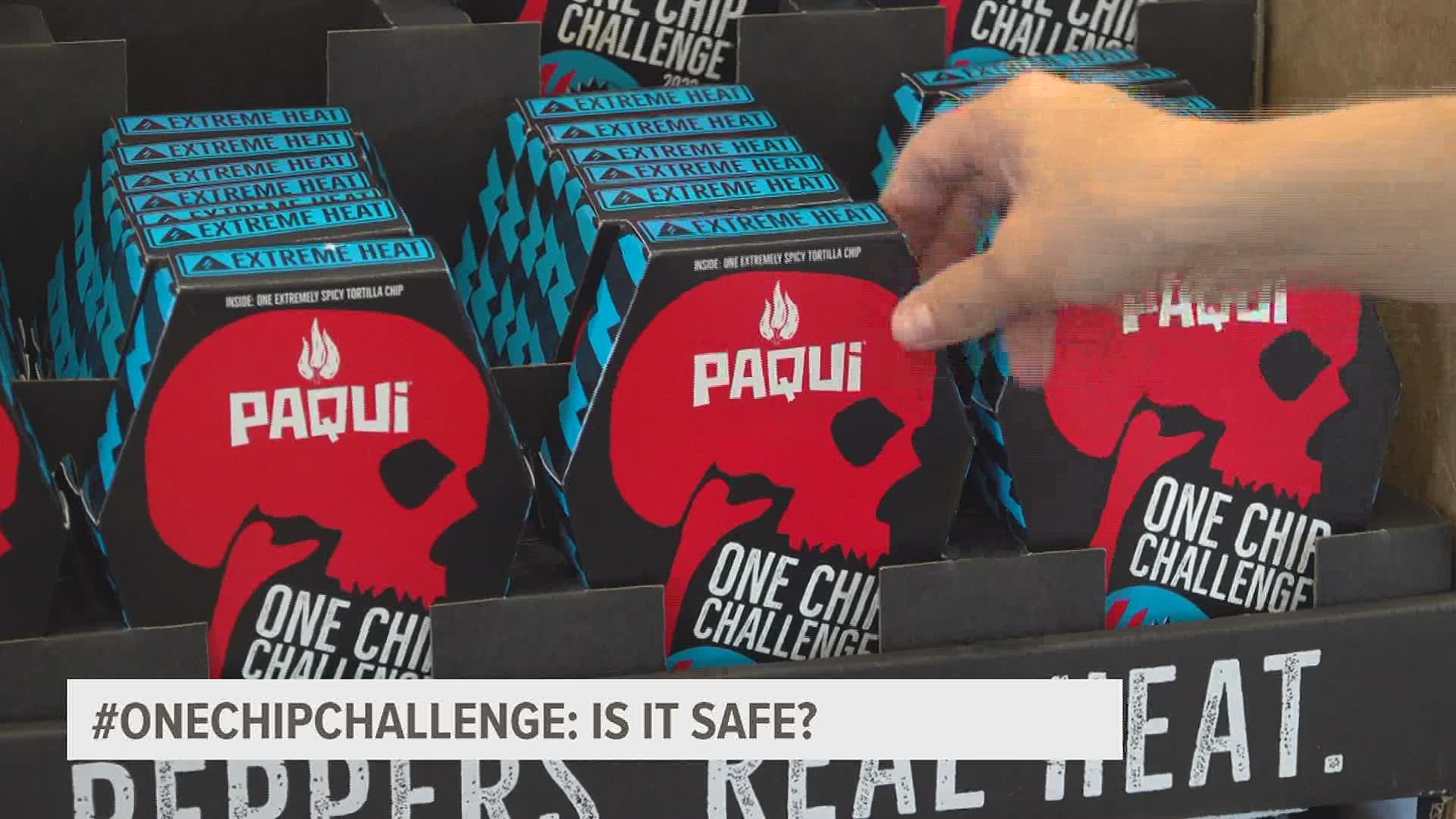HARRISBURG, Pa. — In the One Chip Challenge, participants eat a potato chip dusted with Carolina Reaper and scorpion pepper, then see how long they can wait before drinking water. It’s a hot trend in more than one way; the challenge has gone viral on social media.
After some young people did the challenge and ended up in the hospital, Harrisburg School District released a statement this week to ban the chips from school property.
The active ingredient in peppers that makes them spicy, capsaicin, has some health benefits in low doses, according to recent studies.
Those doses could be found in peppers such as the jalapeno, which has 2,500 Scoville Heat Units (SHU). But the peppers used to make the most popular Paqui brand chip have between 1.2 and 1.4 million SHU. That extremely high dosage of capsaicin becomes a chemical irritant to the body, causing a variety of symptoms that range from uncomfortable to serious.
“Nausea, vomiting, abdominal pain and burning diarrhea, which is probably as fun as it sounds,” said Dr. Frances Onyimba, a gastroenterologist at WellSpan Health.
The stress on the body from the chemical irritant can cause further symptoms that can lead to hospitalization.
“Increased heart rate, it’s [part of] a stress response. Increased blood pressure is the other part of the stress response.”
Dr. Onyimba suggested those who plan to do the challenge consider their personal health, sensitivities and allergies before proceeding.
Despite health concerns, the chip remains popular with young people. One reason why, according to mental health experts, is that teenagers are hard-wired for peer approval.
Brands can use that to their advantage. The brand that makes the chip, Paqui, advertises the hashtag #OneChipChallenge.
“There’s lots of psychology that gets utilized in ads and other commercials,” said Melissa Brown, a psychologist with UMPC. “Of course, they're encouraged to tag them on social media outlets and we know that is one of the places that young people are often found, on social media platforms.”
Paqui did not respond to a request for comment for this article.

